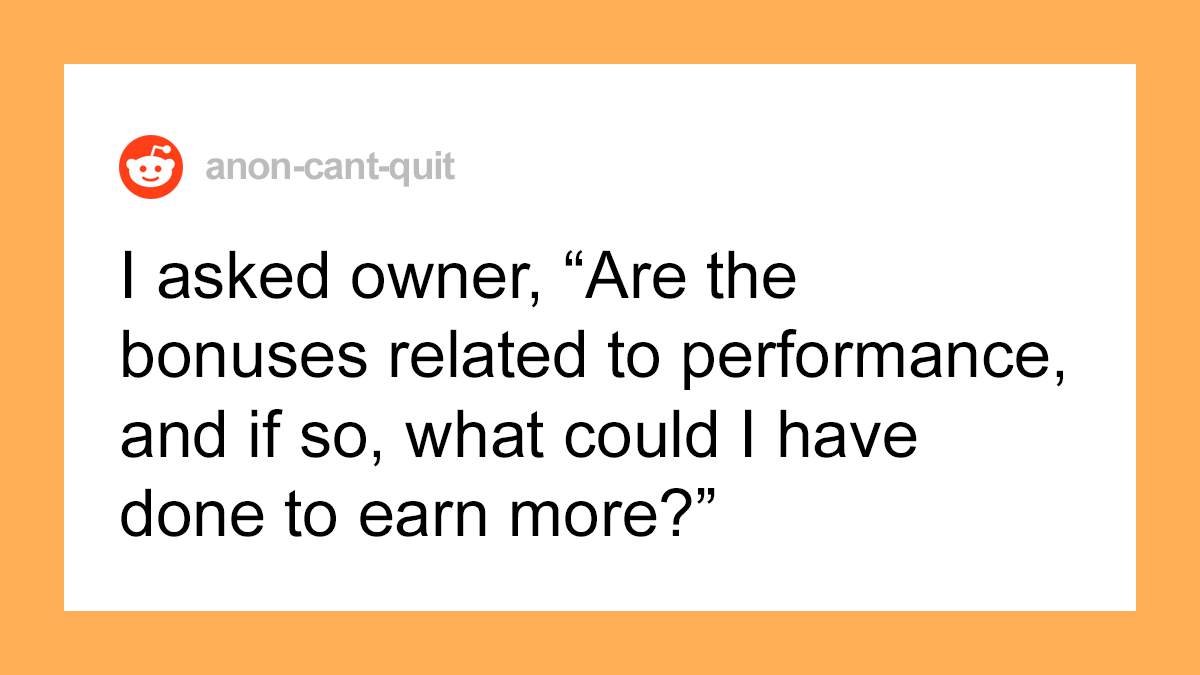
Employee Gets Told They’re “Replaceable”, So They Play Along And It Ruins The Company
The boss-employee relationship is dictated by influence — the unevenness of power in the organization shapes how bosses and subordinates relate to each other. Sadly, as Reddit user anon-cant-quit has experienced, it can get pretty ugly.
The classic “you are replaceable” play has to be one of the oldest tricks in the book but a lot of companies still use it. Even if we’re talking about best performers, it’s not uncommon for managers to try everything they can think of just to avoid having to pay their employees more money.
However, as anon-cant-quit explained on r/ProRevenge, it doesn’t always work. Using their spouse’s business knowledge and outside help, they were able to successfully escape their toxic office and prove that, in fact, it was the organization that was replaceable. Continue scrolling to learn how they did it!
One person who had the “pleasure” of hearing their boss say they were replaceable decided to teach their company a lesson
Image credits: Andrea Piacquadio (not the actual photo)
But everything went even better than they had expected
Image credits: anon-cant-quit
As Fernando Bartolomé and André Laurent pointed out in Harvard Business Review, bosses are not only often unaware of how they misuse their power in relation to subordinates, but they are also frequently unaware of the contradictory messages they send and their motives for doing so.
For example, they may tell subordinates that they expect them to be candid and to feel free to offer criticism but at the same time, they communicate disapproval of candid feedback through subtle and sometimes not-so-subtle cues.
In the superior role, many managers say that they are more concerned about their team’s performance than with obedience for its own sake or with workers doing things the boss’s way. Despite the overt message they send, however—”good performance is what really counts in my department”—many managers communicate subtly to subordinates that obedience and deference are just as important, if not more so.
This story is a perfect example of the moment when managers fail to understand how deeply the unequal distribution of power can hurt interpersonal relations and productivity. During these times, serious problems can arise for the organization. According to Bartolomé and Laurent, the most important and pervasive negative effect of the hierarchical structure can be summarized in the saying, “Trust flees authority.”
Good ideas often remain unexpressed because subordinates believe they will be punished for disagreeing with their superiors or showing too much competence. Honest feedback about the superior’s managerial style is withheld because subordinates are afraid they’ll be blackballed when decisions on promotions are made. Maybe that’s also the reason why OP’s former colleagues bailed on the company and joined their new venture?
A very high number of people express dissatisfaction with the places they work at. A recent study sought to more accurately define the term “good job” and determine how many Americans had them.
The researchers found the top three components of a “good job” were enjoyable day-to-day work, a sense of purpose, and what anon-cant-quit lacked, a stable and predictable pay. But they also discovered only 40% of employees felt they had these things. I hope the rest will also find a way to stand up for themselves.
People thought the way OP got back at their boss was simply flawless
They lose me as soon as they say "I was exceptional in every way". Ok Mary Poppins.
The only thing missing in this story is "and they lived happily ever after."
They lose me as soon as they say "I was exceptional in every way". Ok Mary Poppins.
The only thing missing in this story is "and they lived happily ever after."

 Dark Mode
Dark Mode 

 No fees, cancel anytime
No fees, cancel anytime 







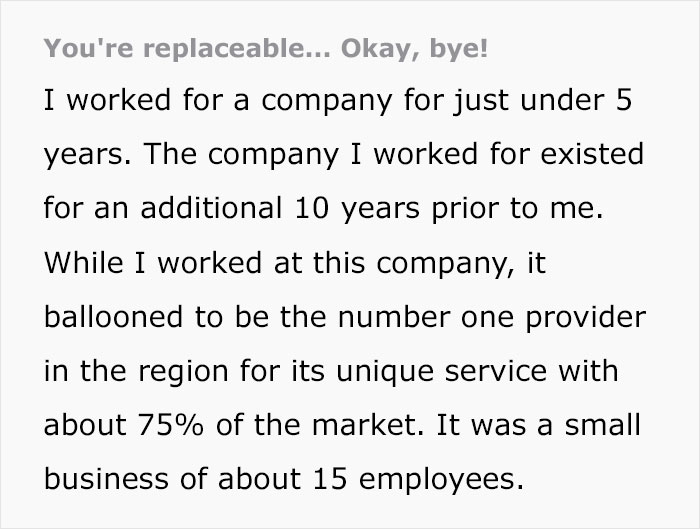
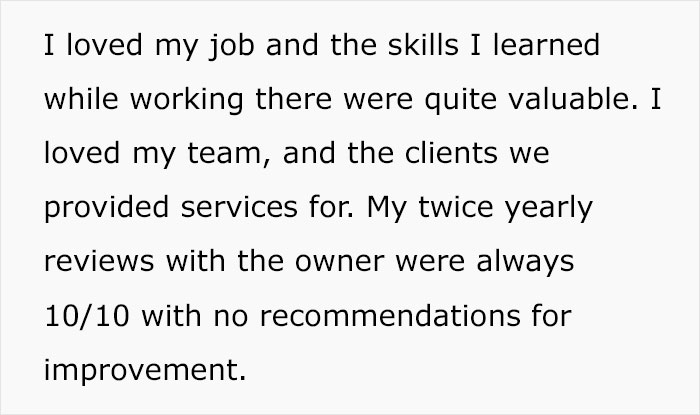
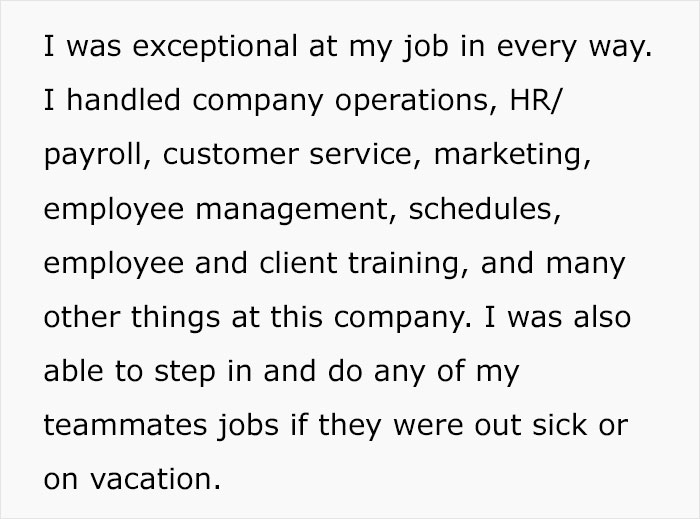
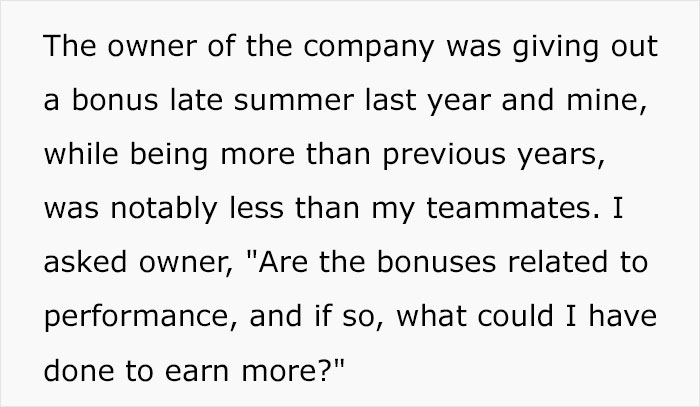

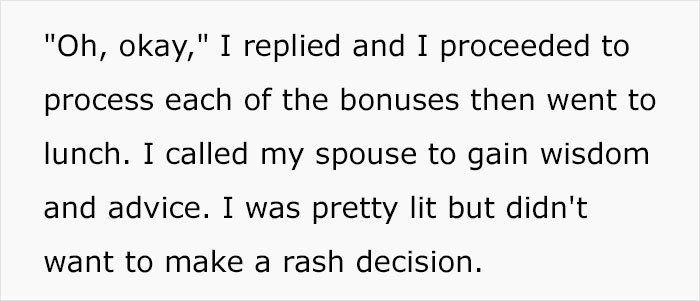
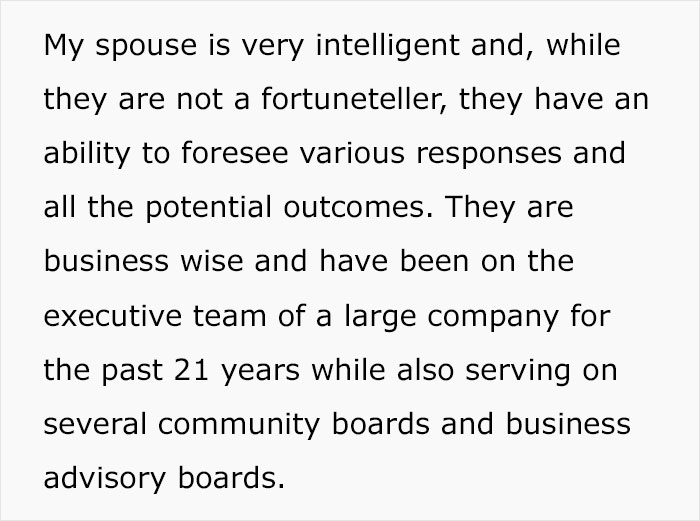
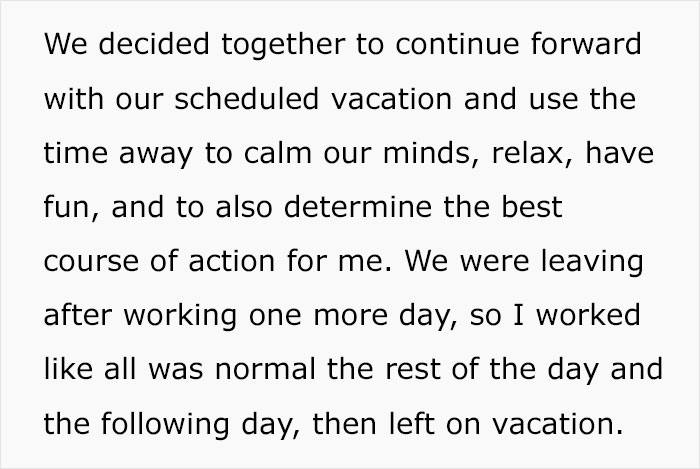
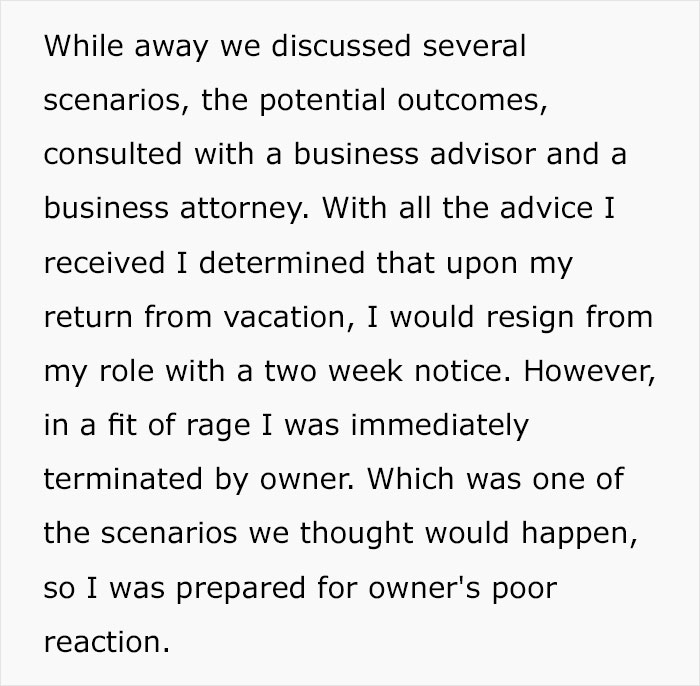
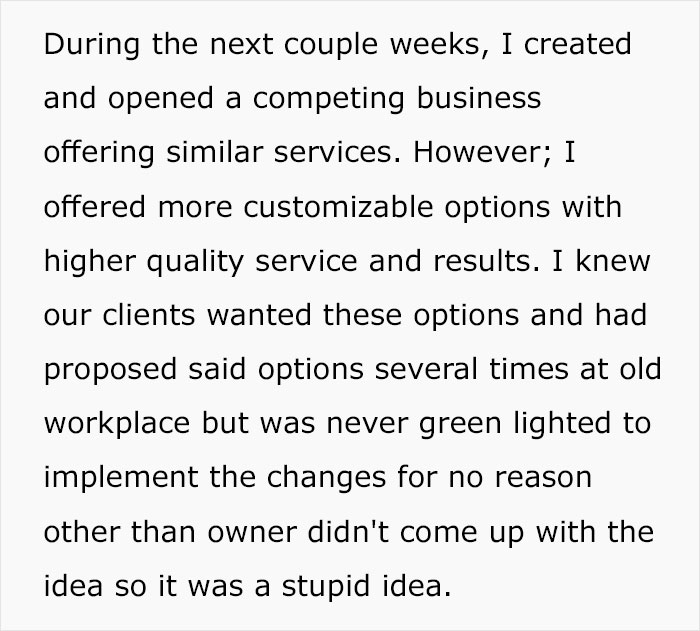
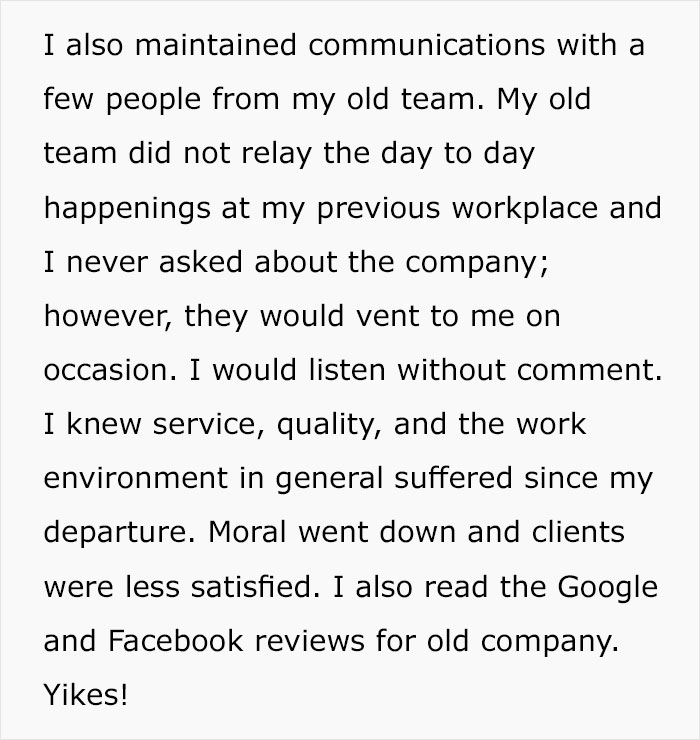
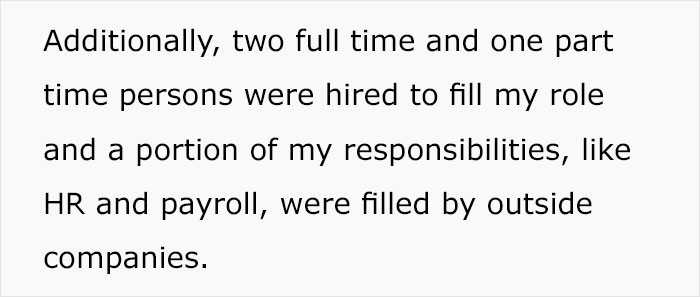
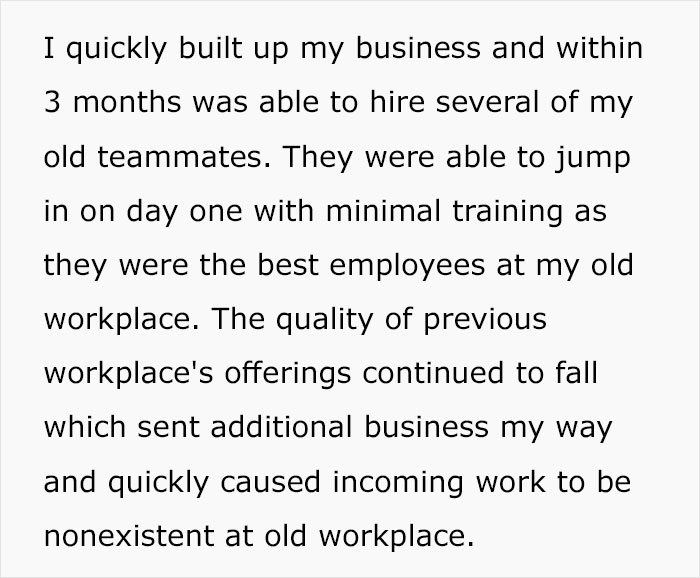
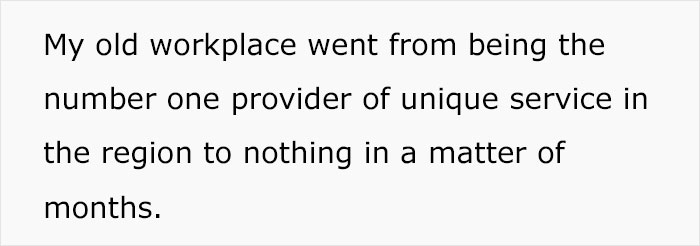
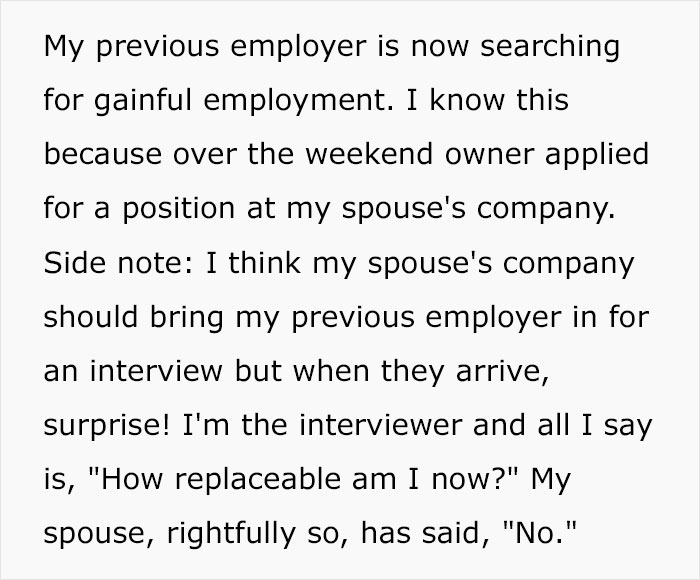
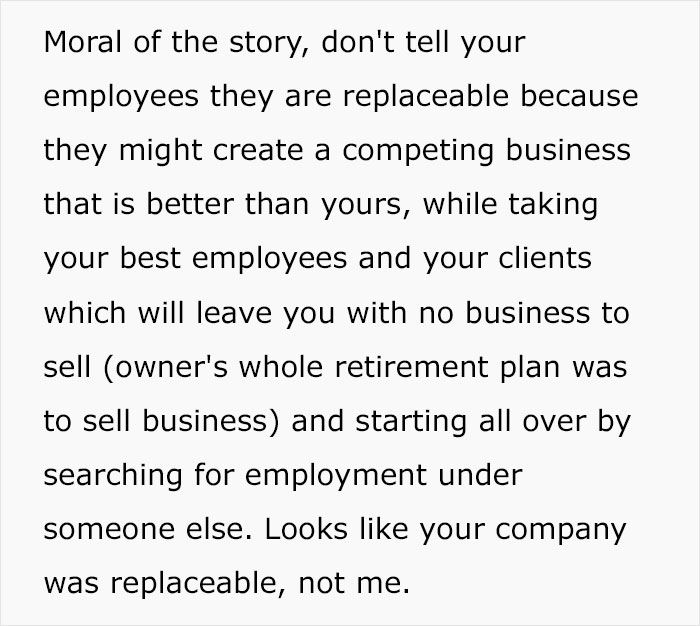
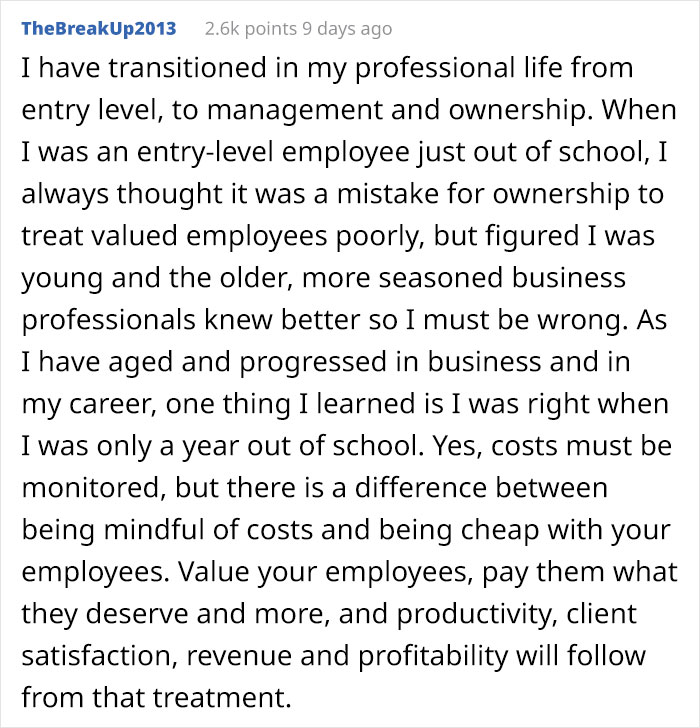

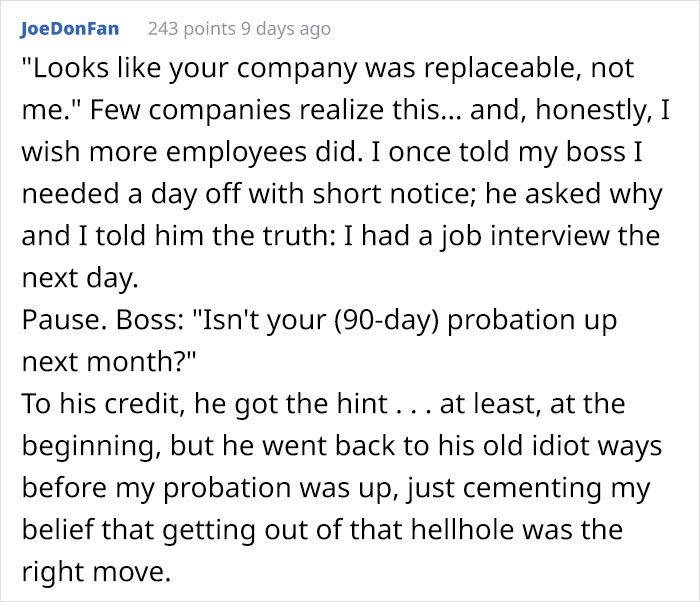


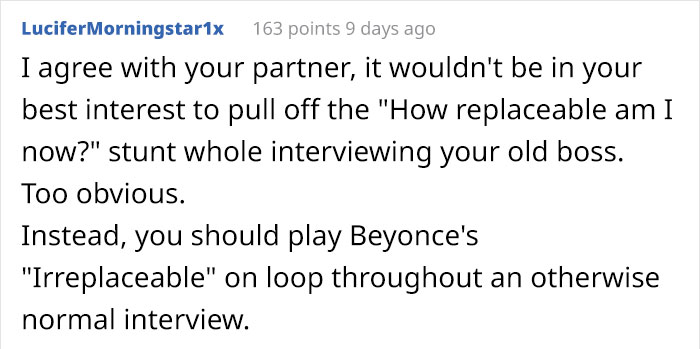
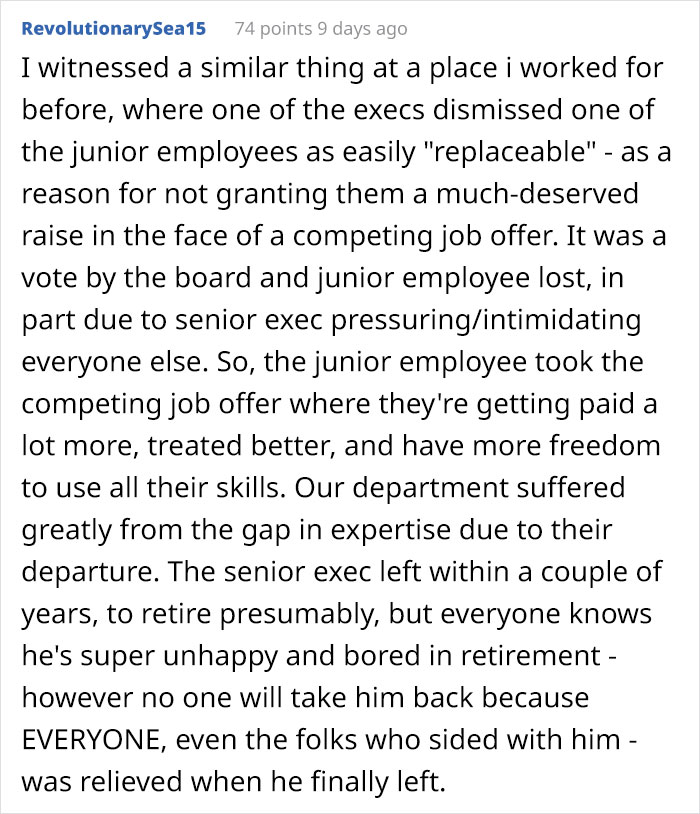

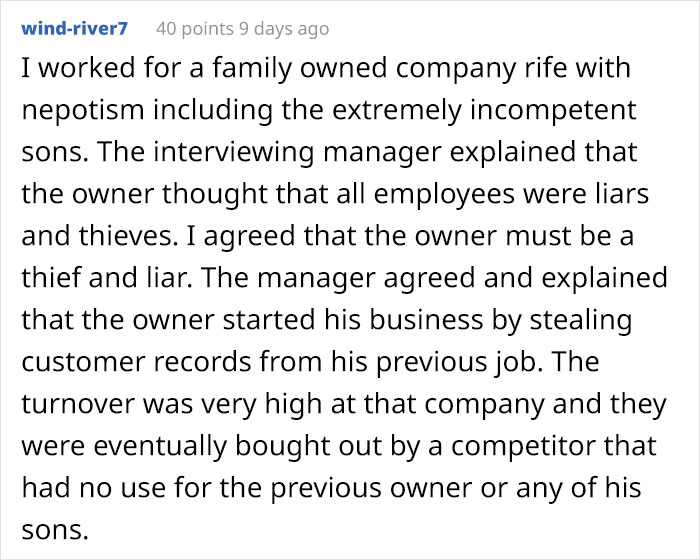













































215
168